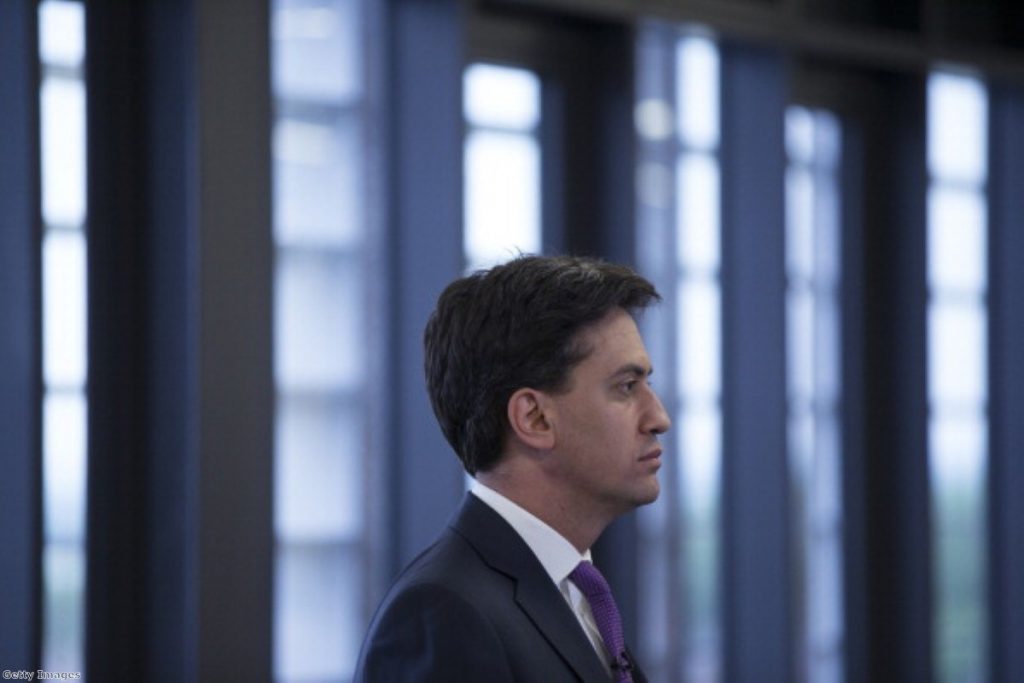The Week in Review: Are Ukip voters thinking what Miliband’s thinking?
Are you thinking what we're thinking? That was the question Michael Howard famously asked during the 2005 general election campaign.
Like William Hague before him, Howard portrayed Britain as an increasingly "foreign land" which crime and immigration had transported to hell in a handcart.
"It's not racist to impose limits on immigration" insisted billboards across the country, with Howard explaining that while "some people say this is racist. It's not. It's common sense."
Whether "common sense" or not, Howard's relentlessly negative portrayal of multicultural Britain was roundly rejected by voters, just as Hague's had been before him.


A decade later and it's another opposition leader who wants to know if you're thinking what he's thinking about immigration.
"It is not prejudiced to worry about immigration," Miliband told voters in Thurrock in almost identical terms to Howard nine years earlier.
"Immigration has been changing communities fast, including here in Thurrock– a growing west African community, people coming from eastern Europe."
Miliband's direct appeal to voters scared about African immigrants 'coming over here' went further even than Howard or Nigel Farage would have dared. It was couched in a wider speech praising the benefits of immigration, but it was surprising all the same. Here was the Labour leader, a liberal child of immigrants, using similar language and tactics to those his party had condemned the Conservatives for using a decade before.
Miliband's shift in direction met opposition from unlikely quarters. On the one hand, Left-wing stalwart Diane Abbott attacked Miliband for 'stooping to Ukip's level' in his speech.
"The fact that he felt the need to talk about Africans goes to the heart of the policy challenge posed by trying to chase anti-immigrant votes," she wrote in the Guardian.
"In popular parlance 'immigrant' means anyone who is black, brown or foreign-looking, and what anti-immigrant opinion actually yearns for is to see fewer of these people on their high street.
She warned of trying to outbid Ukip on immigration because: "pandering to anti-immigrant feeling actually raises expectations no government can deliver on."
Abbott's comments could easily be dismissed by the Labour leadership. She has long been a thorn in various Labour leaders' sides and was sacked as shadow public health minister last year after failing to show sufficient loyalty to Miliband.
However the comments from Tony Blair were far harder to brush off. Blair warned Miliband that that there were no votes for Labour in aping Ukip.
"It's not as if yielding to that pressure from Ukip has done the Conservatives any good," he told the Today programme.
"And for the Labour party if it tries to follow Ukip [on its anti-immigration platform], then all that will happen is it will confuse its own supporters and it won't draw any greater support."
Miliband did not respond to either Abbott or Blair's comments. Indeed he may not even be aware of them. As an interview with Buzzfeed revealed this week, the Labour leader does not read or watch the news and relies on his aides to 'let him know what is going on in the world.'
But if some oracle did manage to relay them to the Labour leader then he should be more than a little worried by them. After all Blair came up against exactly the kind of anti-immigration campaign Labour are currently facing from Ukip, back in 2005.
Blair won that election, not by mimicking Howard on immigration, but by winning the campaign on his own strengths and his own ground. If Miliband decides to ignore that lesson and instead adopts the tactics of Michael Howard instead, then he will head for the same fate as the Conservative leader.
Of course Miliband doesn't need to go back as far as 2005 for an example of how this game can go wrong.
As the Conservative party have only recently discovered, picking a fight over immigration is incredibly dangerous, when you have such little chance of winning it.
Cameron's pledge to reduce immigration to the tens of thousands was an impossible promise to keep and it has only handed Ukip yet another stick to beat him with. Miliband should resist asking for a beating from the same stick.
The truth is that as long as the economy continues to grow, immigrants will continue to come here. The only way immigration could be significantly reduced is if Britain pulled out of the European Union or if it fell into another recession. Neither are attractive prospects for a future Miliband government.
Miliband presumably understands this, which is why he has instead resorted to vague promises to tackle low pay and the regulation of agency workers. Although worthy pledges in themselves, most voters will struggle to find the connection between these policies and their fears about West Africans and Romanians moving in next door.
A premature funeral
Earlier this week, campaigners marked the death of the BNP with a "funeral for fascism" in London.
This seemed rather premature. While Nick Griffin's party has been killed off, the racism and prejudices his party represented have not.
As campaigners continued their celebration of racism's death at the ballot box, Ukip's Harrow Chairman Jeremy Zeid demonstrated that it was still alive and well elsewhere.
Zeid's claims that Labour had committed "ethnic cleansing" in London and his comments about the "absence of white faces" in the capital highlights the insurmountable problems Miliband faces on this issue.
Because however far Labour are willing to march on immigration, Ukip will always be willing to march several miles more. And the problem with asking Nigel Farage's army what they're thinking on immigration, is that you're quite often not going to like what you hear.









